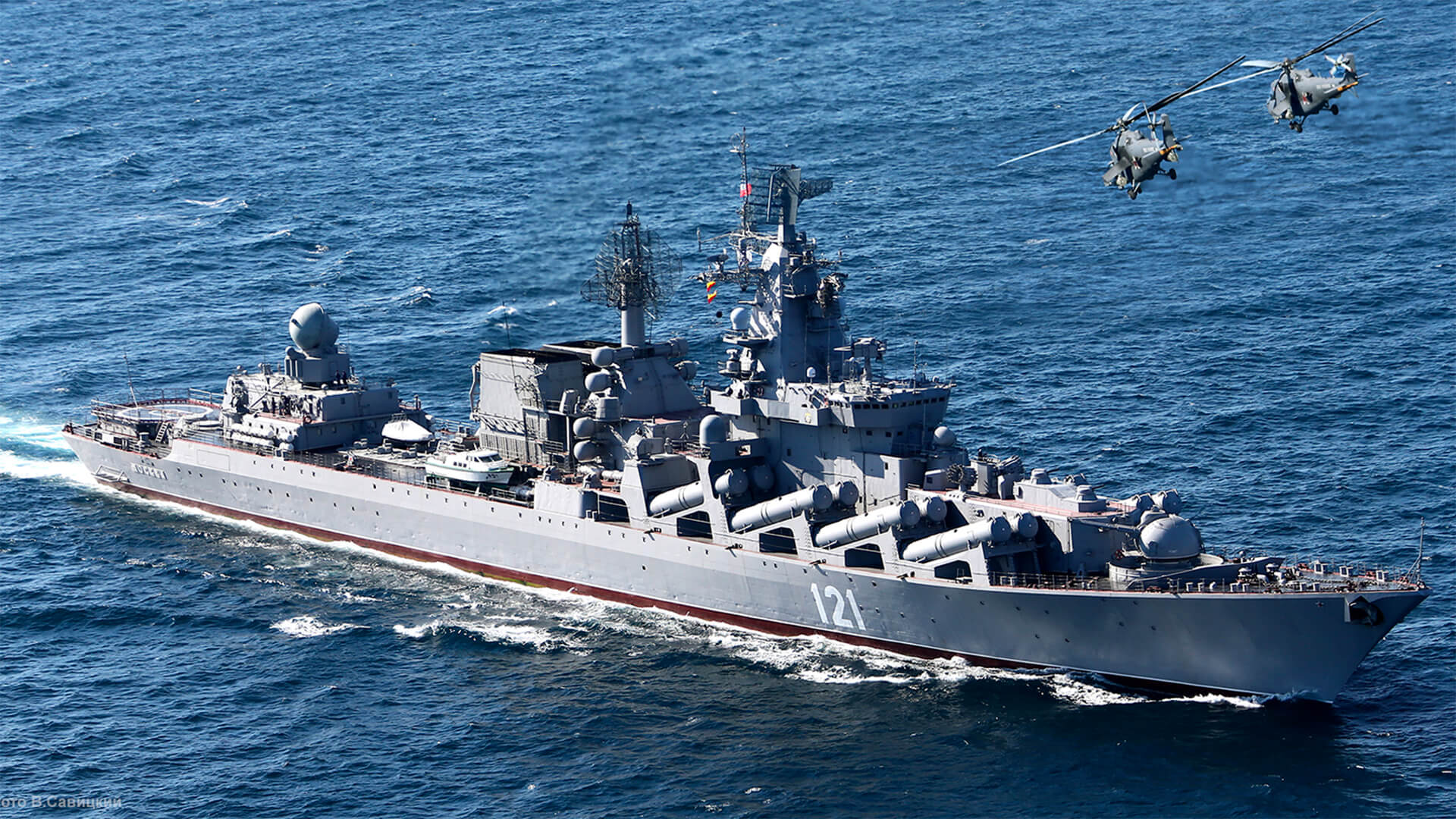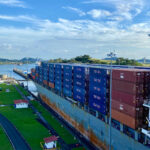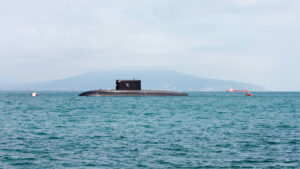Naval challenges are nothing new for the former Soviets, but the Ukraine War has introduced some added stressors in the Black Sea. Russia’s inability to unify its naval presence across the four major seas in the region is a bad sign for Putin.
Russia’s vast swath of territory makes it a logistical nightmare to float a navy. Between the conflict in the Black Sea and the strategic loss of the Baltic Sea with Sweden and Finland joining NATO, Russia’s logistical nightmare is only getting worse.
With Russia’s economy highly dependent upon maritime shipments, finding a solution should be a top priority; however, any naval projects diverting resources away from the Black Sea could be devastating.
No matter what move the Russians make, limiting maritime power will have substantial economic impacts. Putin has once again backed himself into a corner, and I’m absolutely okay with that.
Here at Zeihan On Geopolitics we select a single charity to sponsor. We have two criteria:
First, we look across the world and use our skill sets to identify where the needs are most acute. Second, we look for an institution with preexisting networks for both materials gathering and aid distribution. That way we know every cent of our donation is not simply going directly to where help is needed most, but our donations serve as a force multiplier for a system already in existence. Then we give what we can.
Today, our chosen charity is a group called Medshare, which provides emergency medical services to communities in need, with a very heavy emphasis on locations facing acute crises. Medshare operates right in the thick of it. Until future notice, every cent we earn from every book we sell in every format through every retailer is going to Medshare’s Ukraine fund.
And then there’s you.
Our newsletters and videologues are not only free, they will always be free. We also will never share your contact information with anyone. All we ask is that if you find one of our releases in any way useful, that you make a donation to Medshare. Over one third of Ukraine’s pre-war population has either been forced from their homes, kidnapped and shipped to Russia, or is trying to survive in occupied lands. This is our way to help who we can. Please, join us.
TranscripT
Hey everybody. Peter Zeihan here coming to you from Colorado, where we just had our first big snowstorm, nine inches and counting today. Considering the weather. I figured it was a great time to talk about what the Russians call the Four Seas problem. Most countries who have navies that are worthy of the name have a relatively limited frontage or it’s insulated from all their land power neighbors, and that allows them to float a navy that can then sail whenever they need it.
In the case of some countries like the United States, we have two big ocean fronts, a big chunk of land in between. And so it was an imperative early in the American Republic, around 1900 to build the Panama Canal so that ships could go back and forth. And you’re buying your two navies into a single one for a mailed fist.
To a degree, the French have to do the same thing, but they can’t do a canal. They have to sail around the Iberian Peninsula. And that means that countries like the United Kingdom or Japan, being island nations, are always going to fairly well on the water. Not only because they don’t have land borders to defend, but it’s easy for them to combine all of their navies into a single force when they need it.
The Russians have never had this option. Russians are obviously heir to the physically the largest country on Earth and largest country in history, but they’re not able to combine their naval forces. So they have four seas, the Pacific, the Arctic, the Baltic and the black. And because of that, other countries that have found themselves fighting with the Russians have often been able to defeat the Russians in the tail, with the Japanese being the quintessential example.
In the years of Soviet war of 1904 1905. The Japanese decided that the Russian territories in China were ones that they wanted. So they sailed over there and smashed the Navy. And the Russians spent the next almost year, six months to a year sailing the rest of their navy from the European theater all the way around Asia until they could get there to try to seek the territories back.
And the Japanese destroyed all that, too. So in two battles less than a year apart, the Russians lost everything because they couldn’t combine their forces into a more capable force. That’s even before you consider the Russians have tended to be a technological laggard on all things naval. We’re seeing some version of the forces problems today. The Ukraine conflict is obviously happening on the shores of the Black Sea.
One of those four bodies of water. And the Russians reinforced the Black Sea fleet in the days and weeks leading up to the war so they’d have more punch. But now that Western weapons have made their way into Ukrainian hands, combined with some very clever garage projects by the Ukrainians, the Ukrainians have been able to sink the majority of the major surface combatants, including the flagship.
And what is left of the Russian navy, if it was going to dock in Crimea, which was originally the Russian naval base, going back to the Crimean or sorry, going back to the Tsarist times. They’re all in range of Ukrainian weapons. And so the Russians have had to basically close down their naval base and their primary shipyards and move everything further east to the other major port they have, which is never a cease, which is doesn’t have the dry docks, doesn’t have the service capability, doesn’t have the ability to build ships.
Other problems are that the Russian activities in Ukraine have prompted Sweden and Finland to join NATO. Now, Sweden and Finland control the majority of the sea frontage on the Baltic Sea with the second largest chunk of territory in the Baltic Sea, controlled by countries that were already in Naito. And so now that Finland is in and Sweden is going to be in in a matter of weeks, the Russians will basically have this tiny little chunk of territory in a place called Kaliningrad, and the frontage sits in the general vicinity of Saint Petersburg and that’s it.
So less than 5% of the frontage. And in order to get out to the open sea, they have to sail by a sea. One, two, three, four, five, six, seven, eight, nine. And let’s call it nine neutral countries. And then you’re in the North Sea, which is also NATO like. So basically everything that’s in the Baltic Sea now is written off.
It’s a loss and that just leaves the fleets that are in the Arctic Ocean, which have been depleted because they sent ships onto the Black Sea and then off in the Pacific, which are worse off by themselves. So no matter how the Ukraine war goes at this point, Russia has functionally ceased to be a naval power at all.
The question is whether ego will allow them to accept that fact. And honestly, the more money that the Russians throw at naval projects that they’re not very good at in order to base them at bases that they can’t defend and that can’t reinforce one another, I think the better because every ruble that they use for that is a ruble that is not being used to build a tank or kill a Ukrainian.
So, you know, I say bring it on anyway. What this means is we’re looking at this entire space, seeing a change in military statistics and military strategy because the Russians today are one of the countries on the planet that is most dependent upon naval shipments for their economy. Russian industry is not all that. And they depend upon those oceans for getting their oil and their liquefied natural gas and their aluminum and on and on and on to market.
And they’ve now found themselves in a position where they are utterly incapable of projecting power on the seas in a local basis, much less a regional or national one. And so, yes, when the United States and Europe decide that it’s time to really shut down the Russian economy, they’re going to be able to do it at sea with ease in a matter of days.
So we’re only in the early stages of this war, not simply from a military point of view, but from an economic point of view, too. And it’s time to start preparing for what comes next. And that is a world without any Russian commodity exports starting to get cold. Okay. I think I think that’s it for me. See you guys next time.








